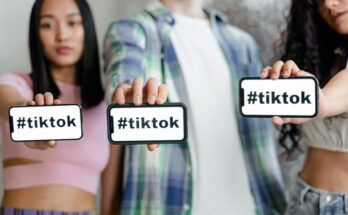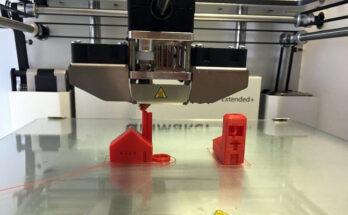File Photo By Nicole Neri/Cronkite News
When talking about someone’s “soft skills,” you’ll be referring to their personality and ability to communicate with others. Skills such as teamwork, time management, empathy, and delegating fall under the umbrella phrase “soft skills.”
According to the World Economic Forum’s Future of Jobs report, sophisticated problem-solving, creativity, people management, critical thinking, and emotional intelligence will be among the most sought-after workplace abilities by 2025. The usefulness of these soft skills is frequently underestimated, and significantly less attention is paid to their development than to hard skills like coding.
Many have the misconception that their employees, especially fresh college graduates who are used to relying on professional paper writing services to write my assignment or proofread their essays, already know how to act in the workplace and the value of skills like communication, initiative, and listening.
What are soft skills?
Soft skills, sometimes known as “people skills,” are the personal qualities that affect how well individuals handle themselves in social and professional situations with others. In the end, these are the kinds of abilities that will help you succeed in your professional and personal endeavors.
These days, businesses place a premium on the following soft skills:
- Creativity
- Problem-solving
- Communication (written and oral)
- Collaboration
- Adaptability
- Positivity
- Negotiating
- Thriving under pressure
6 reasons you need soft skills
- They can grow your network
The ability to network and develop professional relationships in the workplace depends heavily on one’s soft skills. Soft-skilled individuals have a natural curiosity that helps them rapidly follow up on promising leads and learn new information about their field.
Companies rely on employees with extensive professional networks to help them:
- Find new clients;
- Mentor employees;
- Fill open positions.
Your future employer may value your thoughts and input more if you have a valuable network.
2. Soft skills are notoriously difficult to automate
Soft skills, such as emotional intelligence, are difficult to automate. As a result, they are not expected to be mechanized in the near future. This suggests that they will likely increase in popularity in the not-too-distant future.
3. Good interpersonal skills make great leaders
Companies place a high value on employees who can develop and maintain positive connections with clients, consumers, and other stakeholders. Still, such workers rarely remain in entry-level positions for very long.
People who have the soft skills to lead in the future stand out from the crowd. Your interpersonal skills are crucial in determining how well you can lead a team to complete a task. In addition, demonstrating concern for customers’ problems and feelings shows that you care about meeting their demands.
4. Soft skills are helpful in gauging the effectiveness of teamwork
If you’re interviewing for a team-based role, the hiring manager will likely consider your demonstrated ability to collaborate with other candidates. Soft skills are a way for employers to evaluate your social and communicative qualities on the job.
Showing you can work well with others is a great asset to potential employers. Soft skills, such as adaptability and attentiveness, are highly valued by employers who are looking to build strong teams.
5. The future workplace will depend on soft skills
Jobs requiring interpersonal skills will increase due to automation and AI. Due to technological progress, fewer jobs now call for technically-oriented expertise, making soft skills a competitive advantage.
From 2030, soft skill-intensive occupations are expected to make up two-thirds of the workforce, according to a report from Deloitte Access Economics. Teamwork, communication, and the ability to think critically will be more vital than ever.
6. Soft skills give a boost in confidence
Thanks to your people skills, you can easily handle any problems that arise on the job.
Your self-assurance will also serve you well in professional settings when you need to persuade others of your point of view. For instance, if you confidently walk into a job interview, you may get hired. Developing confidence via the application of soft skills is an excellent way to ease into a new workplace and quickly become an indispensable member of the team.
Blending hard and soft skills
Even though having the required hard skills to do your job is crucial and usually the main requirement for many jobs globally, combining soft skills with hard skills helps you advance in your field and become a professional.
To effectively combine these abilities, think about the duties and responsibilities of your current position or the one you hope to attain. While you’ll use your technical abilities daily on the job, your interpersonal skills may only come in handy occasionally.
As a graphic designer, you could combine your technical abilities with artistic flair to make a customer a brand-new poster. You’ll also need to use your people skills to communicate effectively with the customer while you create the poster. This will allow you to include the information they requested without sacrificing your own vision.
If you’re fresh out of college, it can be difficult to learn how to integrate your hard and soft talents. When you apply the hard and soft skills you learn at university to the various assignments and presentations you do, you give yourself a leg up. You’ll also get tips on highlighting your soft skills in your cover letter and resume with the help of writers from the best paper writing services.
The bottom line
Because computers are so bad at simulating human interaction, employees must still work on their social skills. Therefore, it is still important for people to seek out opportunities to hone their social and soft skills through activities like volunteering, team leadership, and collaborative open-source projects.









